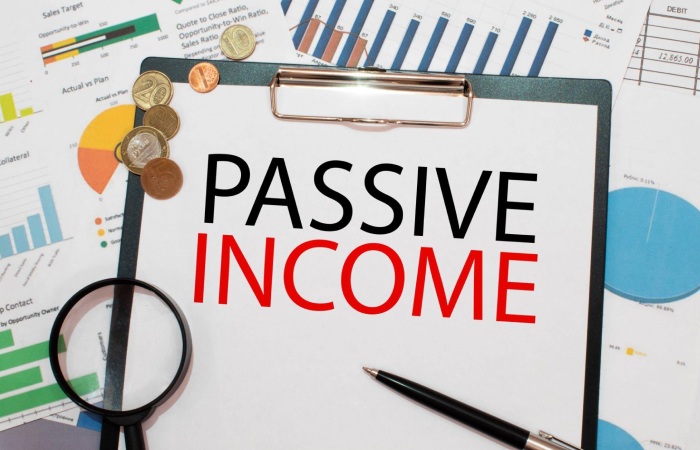Passive Income – In About a Boy, Hugh Grant plays a rich, unemployed dabbler of fortune. His father once wrote a popular Christmas song, on the royalties from which the hero lives – receives a passive income as an heir without working. But not everyone is so lucky, so let’s consider other options for passive income.
When you work and get a salary or bet at https://20bet.com/ successfully, this is an active income. But if you suddenly lose your job for any reason – downsizing, illness, a disagreement with your boss – this income will be gone. Passive income is money that comes to you regularly, regardless of your age, health, or ability to work.
Passive income planning should be taken seriously, because it isn’t usually created in a month or even a year. First you need to decide: when exactly you will need additional income – in three, five or ten years. Determine how much money you need, for how long, and how often you want to receive payments: once a month for the rest of your life, periodically, such as every five years, or on some other schedule. Think about how you can set aside a little from each paycheck, once a year from a bonus, or just once when you receive an inheritance. Deadlines and amounts, of course, must be realistic. Once you have decided on your plans, you can choose the most appropriate tools.
Table of Contents
What Can Be the Sources of Passive Income?

A Bank Deposit
A bank deposit is a familiar way for everyone to create passive income. If you have not yet dealt with investments, don’t want to take risks, but you understand that keeping money under the mattress isn’t profitable because of inflation – open a deposit at the bank.
This is the easiest thing to do. You give a certain amount of money to the bank for safekeeping, and it pays you interest for it. And you have a guaranteed and regular income. But to live on interest alone, you will have to invest a large sum of money.
Investing in Securities
Investing in the stock market can be a form of passive income. The main law of investing: the profitability is proportional to the risk, the profitability grows, the risk grows. It’s therefore best to start with the least risky and most predictable instruments – bonds, preferred stocks, or units of investment funds with high credit ratings. Riskier tools aren’t for beginners.
What Else Can Bring Passive Income?

Real Estate
Renting an apartment, or better, several of them, collecting money from tenants and not going to work sounds like a dream. But in fact this income is also accompanied by costs and risks. You need to consider the costs: rent, property tax, rental tax. It’s desirable to insure the apartment in case of fire, flood and other troubles. If the area isn’t prestigious or there are many offers to rent apartments, it may be difficult to find suitable tenants. Tenants may not pay on time or damage your property – and it’s good if the insurance will cover repairs.
Crowdfunding
Creating and running your own business isn’t for everyone. But it’s possible to invest in other people’s projects in order to make money. For example, with crowdfunding, you can invest in startups and fast-growing companies. They can “shoot up” and bring in a huge income. They can also go bust, along with the investors’ money. Don’t invest all of your savings in such projects. But if you have already created a few other, more reliable options for passive income, then a small portion of your free money can be invested in this way.
Creating Intellectual Property
Creating a hit, a bestseller, a blockbuster, or patenting an ingenious device for opening milk cartons is a great way to start generating passive income. You can get royalties for your work or invention for the rest of your life. Even your grandchildren will get it. Of course, to live on royalties, you need to create something very popular and properly formalize the rights to your invention. It’s worth a try – the sooner you start, the better your chances of making a life for yourself and your children like the hero of the Hugh Grant movie.
Is a Mortgage Debt a Tool?
Mortgages. These debt instruments are employed to fund the acquisition of real estate, such as a plot of land, a house, or a piece of commercial property. As mortgages are amortised over a certain timeframe, the borrower is able to make payments up until the loan is fully repaid. Throughout the course of the loan, lenders also get interest payments. Four kinds of debt are frequently used: secured, unsecured, revolving, and installment. You’ll also notice that categories frequently overlap. When navigating mortgage options, it’s crucial to explore different lenders, including some of the best banks in America, to secure favorable terms and maximize the benefits of your real estate investment.

